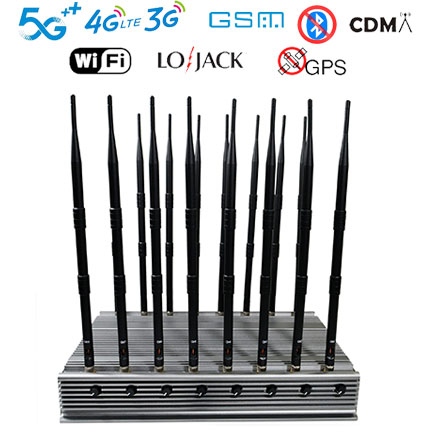Mobile phone jammer is device that are often used in political meetings of the size of the G-20, where leaders from around the world are gathered in a relatively small space. In most cases they are the size of a handy, and what they do is very simple: they interfere with mobile phone signals (they emit “noise” in the same tuning), rendering these devices useless.
Why? To avoid two things: on the one hand, eliminate the possibility of somehow taking control of the phone and, for example, activating the phone’s microphone without the user knowing. And it doesn’t have to be President Trump’s – anyone there could serve as a microphone. Signal inhibitors also serve to prevent someone, from a distance, from contacting a cell phone that is in one of the “hot” areas of the G-20, either to give a warning and orchestrate an attack, or to activate a remote bomb.

This is how they were used, for example, in Barack Obama’s visit to Argentina in 2016: they were installed along the entire path of the presidential entourage.
Signal blocker is also used for more pedestrian things: in the first game of the Copa Libertadores final, Conmebol evaluated using an inhibitor for Marcelo Gallardo (who could not be on the field of play) to communicate with Matías Biscay . The problem is that the signal inhibitor does not discriminate: anyone who falls within its range (a radius of 50, 80, 100 or more meters, depending on its power, and a cost that goes from 300 dollars onwards) also remains disconnected. They can be the size of a handy, a suitcase or (the most sophisticated) a truck, so the cone of interference moves.
Some Spanish universities put them into practice a few years ago to prevent students from copying or receiving help from outside the classroom during exams. The signal inhibitors have also been used to violate the warning of the alarms that notify the police or the security company via the cellular network, and they have been tested in prisons to have greater control of the exchange of information between prisoners and the people outside.
In Argentina, the National Communications Agency is the only body that can authorize its use, and considers its autonomous application illegal, since it considers that such interference is an illegal use of the spectrum.